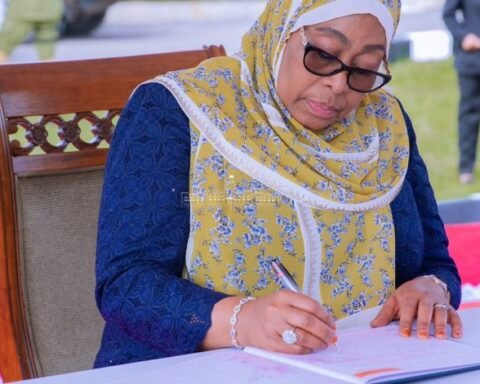As the winds of the Fourth Industrial Revolution (4IR) sweep across the globe, Tanzania and Zanzibar stand at a defining moment in their development journey.
With bold vision and smart application of technology, both regions have a unique chance to leap over traditional barriers — and step into a future shaped by innovation, sustainability, and inclusive prosperity.
This is the core message from Simai Mohammed Said, a Member of the Zanzibar House of Representatives, who is calling for national action to harness digital tools in key economic sectors, particularly the Blue Economy.
“It’s not just about machines or data,” Simai said. “It’s about using technology to improve lives — from our seaweed farmers to our small-scale fishermen.”
Tanzania’s fisheries sector already contributes around 1.7% of GDP and feeds over six million people. But the true transformation, according to Simai, lies in modernizing aquaculture. With Internet of Things (IoT) sensors monitoring oxygen levels, temperature, and fish health in real time, farmers could dramatically boost yields while preserving the environment.
Also Read; Africa Faces Urgent Call to Rethink Infrastructure Financing
In Zanzibar, where seaweed farming employs thousands — many of them women — there’s growing excitement. Backed by a $14.5 million investment from the Food and Agriculture Organization (FAO), the islands are exploring marine biotechnology, aiming to add value to raw seaweed and enter global markets for cosmetics, health supplements, and sustainable packaging.
“With value addition, our seaweed could be worth three times more,” Simai explained. “And that means more income for our coastal communities.”
Another bright spot is marine tourism, a fast-growing sector with enormous potential for job creation. Initiatives like Tanzania Dive Labs, which train youth in marine conservation and underwater tourism, are already changing lives.
Simai envisions further gains through digital oversight — such as vessel tracking systems to reduce illegal fishing, e-commerce platforms for marine products, and apps to connect tourists with eco-friendly services.
To realize this vision, Simai is urging the government to establish a Blue Economy Innovation Fund, jointly operated by Zanzibar and Mainland Tanzania. The fund, he says, would support startups and community cooperatives that integrate new technologies in sustainable marine activities.
Such a fund could also back climate-smart agriculture, another pillar of the economy. Agriculture employs nearly half the country’s workforce and contributes to around 85% of exports. But low productivity and growing threats from climate change continue to hold it back.
Simai’s argument is clear: technology must serve the people. From fishers in Tanga to seaweed farmers in Pemba, digital tools should not just generate profits — they must enhance livelihoods, promote equality, and protect Tanzania’s rich natural heritage.
“The ocean is our future,” he said. “Let’s build that future with vision, courage, and technology that includes everyone.”







